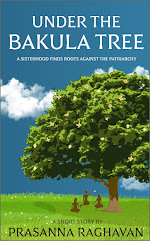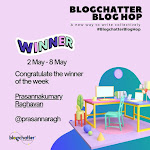Book Review- Born A Crime And Other Stories.
I recommend the book to anyone interested in identity, discrimination, belonging and human development. It's funny, peppered with humour that would pierce your conscience in the next moment with challenging questions about humanity.
Book Title: Born A Crime And Other Stories
Author: Trevor Noah.
Book genre: Non-fiction
No of pages: 342 (in soft cover)
Trevor Noah is a South African-born, internationally famous standup comedian. The book is about his growing up in South Africa since 1984.
It is a right-to-passage and coming-to-maturity story written in an
uncompromising and vivid narrative of his childhood, home, school, cultural
dogma, crime-infested life of the young men in Alex, a Black township during Apartheid,
domestic violence and many more.
It is also the story of a mother-child relationship developing
in racially troubled circumstances; his
mother is a dedicated churchgoer and staunch believer in Jesus, and he
considers every trouble he faces to have something to do with the church, but
she made him a thinker.
The book got a fair share of humour that makes one laugh their
heads off. The next moment, they disturb
a conscientious mind darting it with profound philosophical and humanistic questions.
The tile and the book cover.
The book's title is appropriate; his birth was a crime, being born in a racial relationship-his mother, a Xhosa woman and his father, a Swiss German.
He was born in 1984, at the time of Apartheid. (Apartheid was a crime against humanity, a legal system of human segregation introduced in 1948 by the immigrants who settled in South Africa in 1652 and onwards.
It meant apart-hood or apartness. It ruled that people of different races must live in separate
areas assigned to them. It was abolished
in 1994 when South Africa became a democratic republic where anyone can marry
anyone.) The book cover shows his face, which is appropriate because he has global fame.
A Few Quotes from the Book.
"I was nine years old when my mother threw me out of a moving
car."
On a Sunday night, when they were returning from attending their church services, his mother jumped out of a moving taxi, her body wrapped around his young brother after throwing him out of it when it slowed down at the traffic junction to escape from the driver of the vehicle, a Zulu man, who threatened to punish her after accusing her of being a whore as she had travelled without accompanied by her husband.
Zulu and Xhosa were two antagonistic tribes in South Africa, where the
Zulu women were dutiful and well-behaved and the Xhosa women promiscuous and
unfaithful. ( It took time to cease the
cultural dogma to some extent between the two after South Africa became a free nation)
"In Germany, no child finishes high school without learning about the Holocaust. Not just the facts of it, but the how and the why and the gravity of it -- what it means. As a result, Germans grow up appropriately aware and apologetic. British Schools treat Colonialism the same way to an extent. … In South Africa, the atrocities of Apartheid have never been taught that way … (We were taught) Apartheid was bad. Nelson Mandela was freed. Let us move on."
Here he mentions about the post-apartheid South Africa. The constitution, set up in 1994, gave the Bill of Rights equality to everyone in South Africa but still needs to address the why, how and gravity of how it affected the people.
(Racial inclusivity is a possible reality in post-apartheid South Africa, but economically bringing everybody to a substantive level is the challenge.)
"In society, we do horrible things to each other because we don't
see the person it affects. We don't see
their face. We don't see them as
people. Which was the whole reason the
hood was built in the first place, to keep the victims of Apartheid out of
sight and out of mind. Because if White
people ever saw Black people as human, they would see that slavery is
unconscionable. We live in a world we
don't see the ramifications of what we do to others because we don't live with
them. … If we could see one another's pain and empathise with one another's
pain and empathise with one another, it would never be worth committing the
crime in the first place."
Towards the end, we see his mother admitted to the hospital
after being shot by her second husband, Trevor's stepfather, and miraculously
escaping from the shot.
"And finally, for bringing me into this world and making me the man I am today, I owe the greatest debt, a debt I can never repay, to my mother." With that acknowledgement, he concludes his book.
My take:
I recommend the book to anyone interested in identity, discrimination, belonging and human development. Cannot point out anything negative about the book.







0 comments
Post a Comment